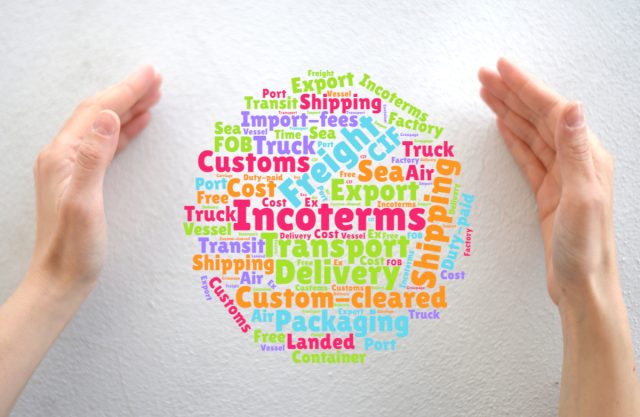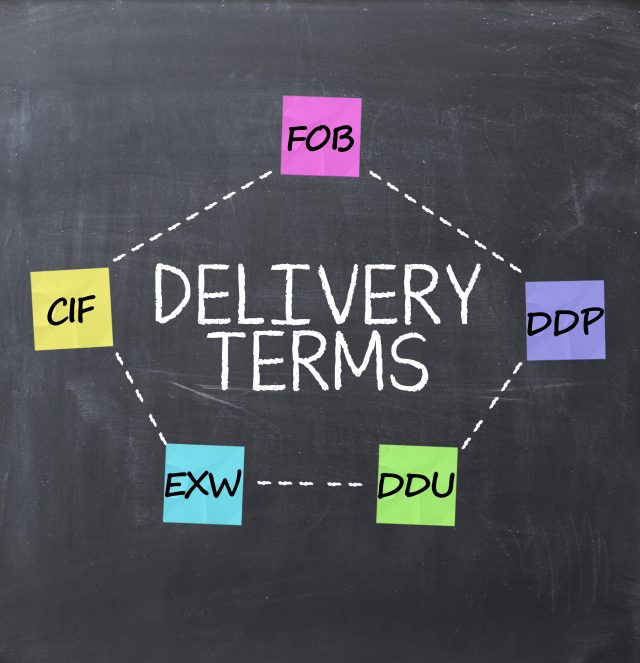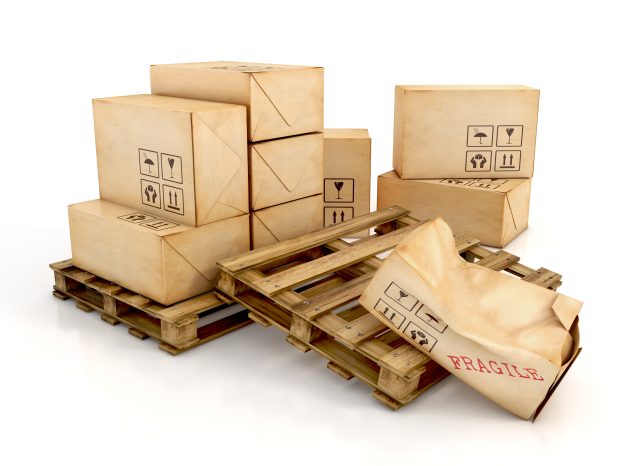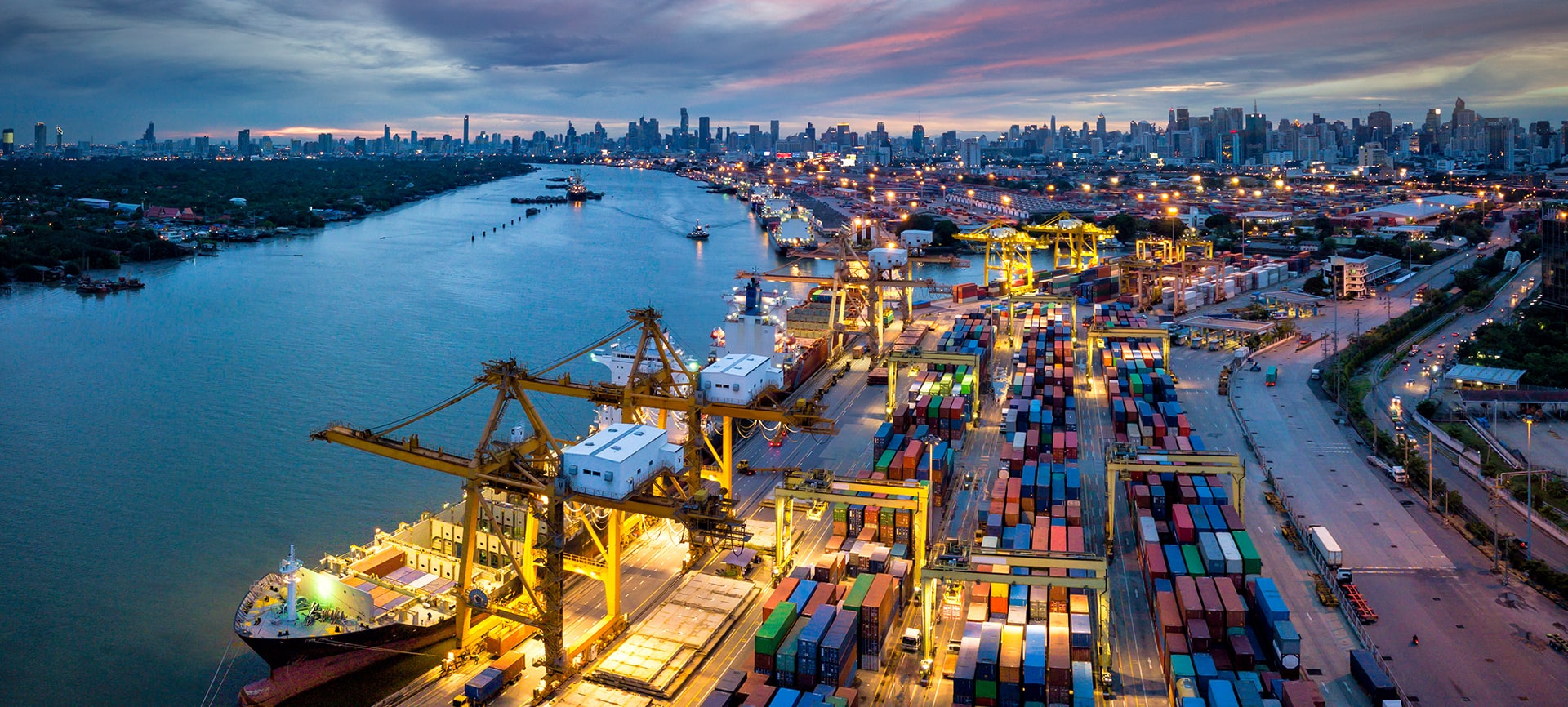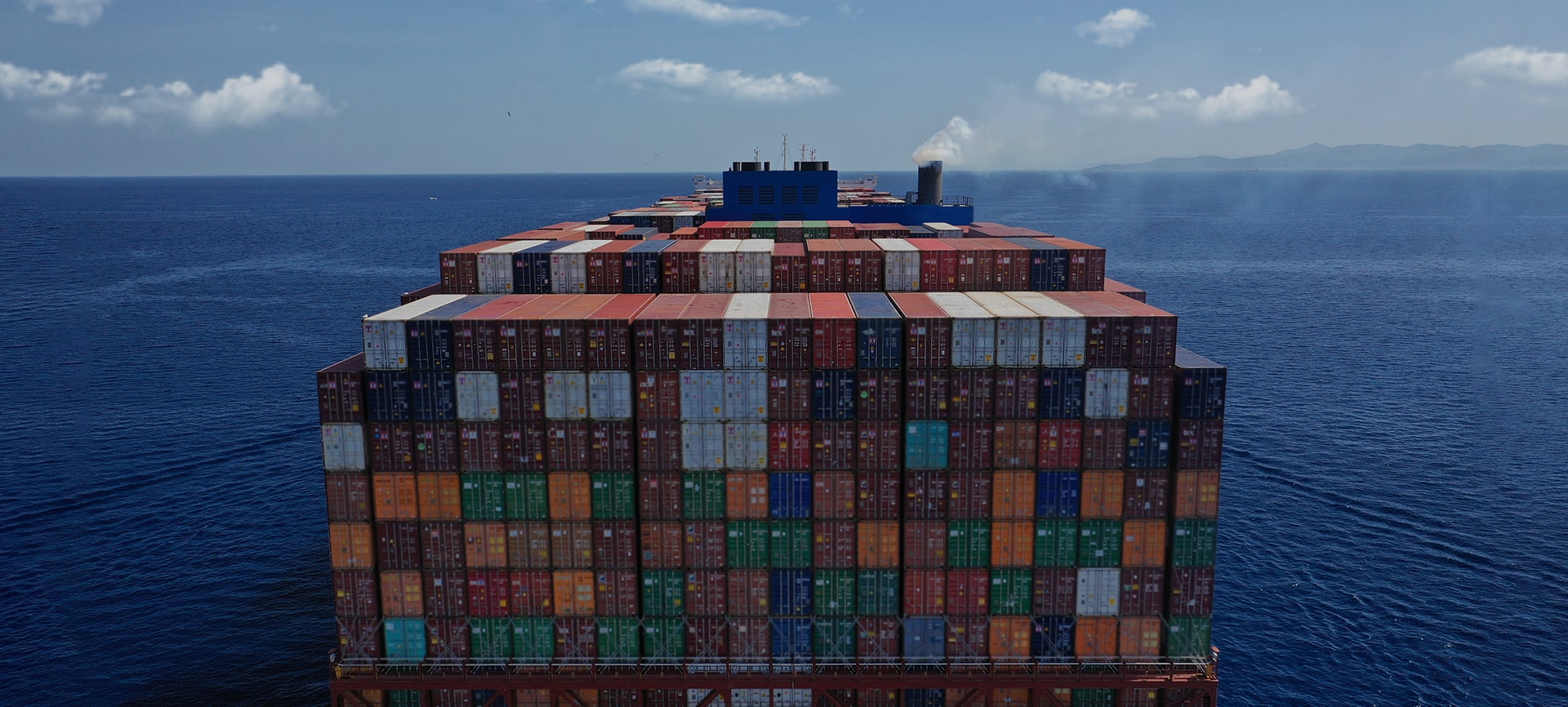Posted on: October 9, 2018 / Last updated: June 12, 2024
What’s AWB? Explain about the feature of Air Waybill and the difference between MAWB and HAWB.

B/L is the important document for sea shipment and there are Master B/L and House B/L. And also there is Air Waybill(AWB) as an important document for Air shipment. This time I would like to explain about AWB in Air Shipment.
::
CONTENTS
What is AWB (Air Waybill)
First of all, what is AWB (Air Waybill)?
AWB is an invoice for international air cargo which plays the same role as shipping slip of EMS or DHL if it says simply.
In the AWB we will explain the contents of what is described is as below.
1. Air Line Name
2. AWB number
3. SHIPPER: Shipper’s Name, Address
4. CONSIGNEE: Consignee’s Name, Address
5. Departure airport
6. Landing airport
7. Flight number
8. Item quantity
9. Item weight
10. Chargeable Weight
11. Air Freight *As Arranged
12. Item name
* Additional charge (fuel surcharge, security charge, etc.)

::
Master AWB
It is the AWB that the shipper and the airline contract directly. Basically, an air cargo agent (forwarder), which is a dealer of airline company, will issues AWB even if it says direct contract.
SHIPPER and CONSIGNEE are listed actual shipper and consignee. In other words, if TOYOTA Thailand is the sender and TOYOTA Japan is a consignee, TOYOTA Thailand is listed in SHIPPER and TOYOTA Japan in CONSIGNEE.[br num=”2″]
As stated at the beginning, since Master AWB is a direct shipping contract between the shipper and the airline, the airline operating the airplane will be transported from the departure airport to the arrival airport.
In other words, the consignee who received Arrival Notice from the airline when the cargo arrives at the landing airport must take D/O to the airport by himself and make import customs arrangements by himself as well. It seems very complicating work. As an advantage, Cnee will be able to receive cargo earlier than Forwarder AWB.
::
Forwarder AWB (MAWB & HAWB)
There are two AWBs in Forwarder AWB.
1. MAWB (Master AWB)
2. HAWB (House AWB)
MAWB will be a shipping contract between the air cargo agent (forwarder) and the airline. On the other hand, HAWB is a shipping contract between shipper and forwarder.
Let’s explain the difference between MAWB and HAWB.
:
What is MAWB (Master AWB)
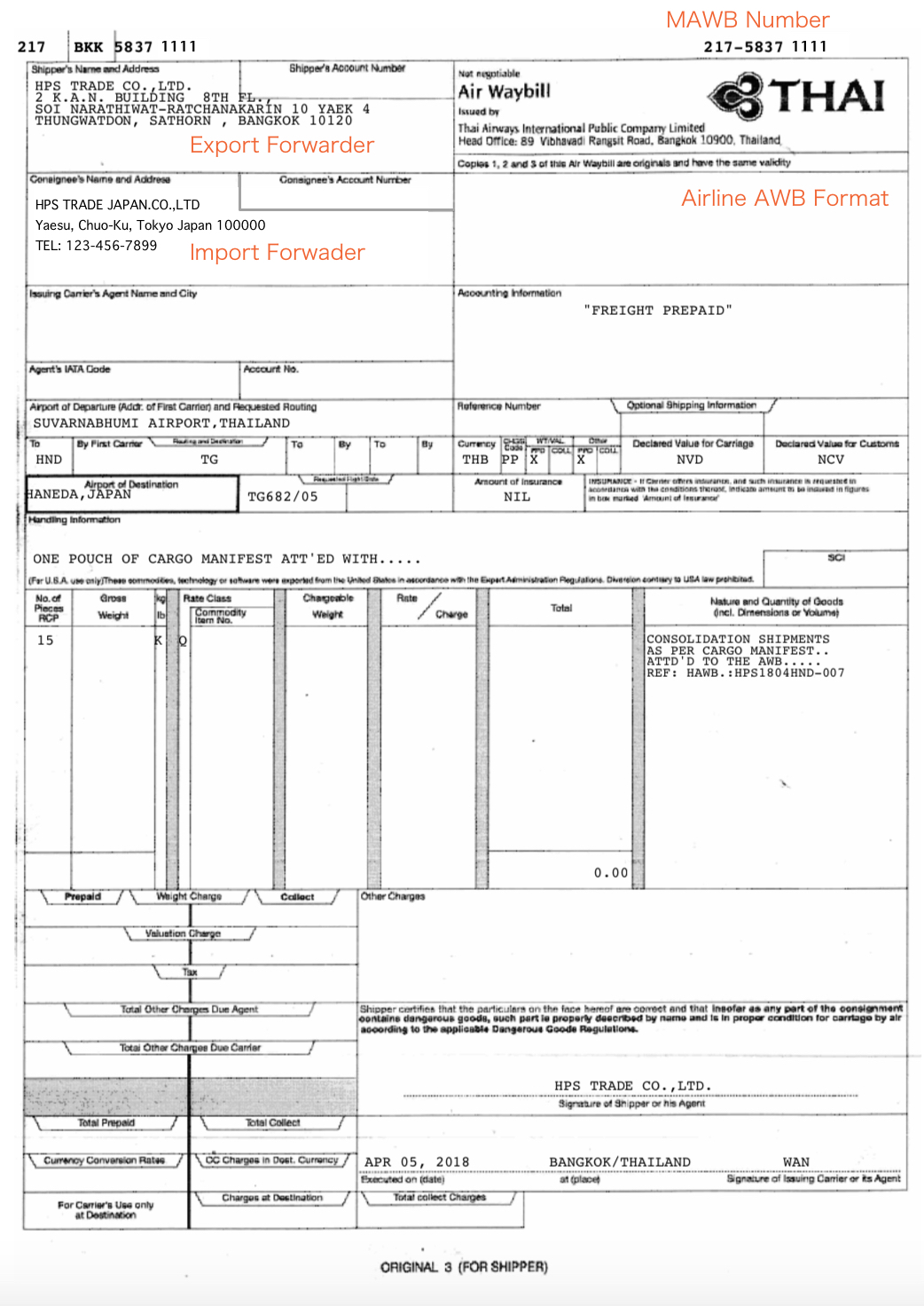
As mentioned above, the shipping contract will be connected with forwarders and airlines. Therefore, on MAWB the following will be stated.
* AWB number: AWB number issued by airline
* SHIPPER: Export Forwarder name, address (ex. HPS Trade Bangkok)
* CONSIGNEE: Import Forwarder’s name, (ex. HPS Trade Japan)
* Departure airport
* Landing airport
* Flight number
* Product Name: Consolidation
* Number: Total number of all HAWB
* Weight: Total weight of total HAWB
* Air Freight
* Additional charge (fuel surcharge, security charge, etc.)
Forwarders themselves own cargoes and using the space of airplane operated by Airlines. Therefore, the source air and the landing airport will be operated by the Airline to use.
:
What is HAWB (House AWB)
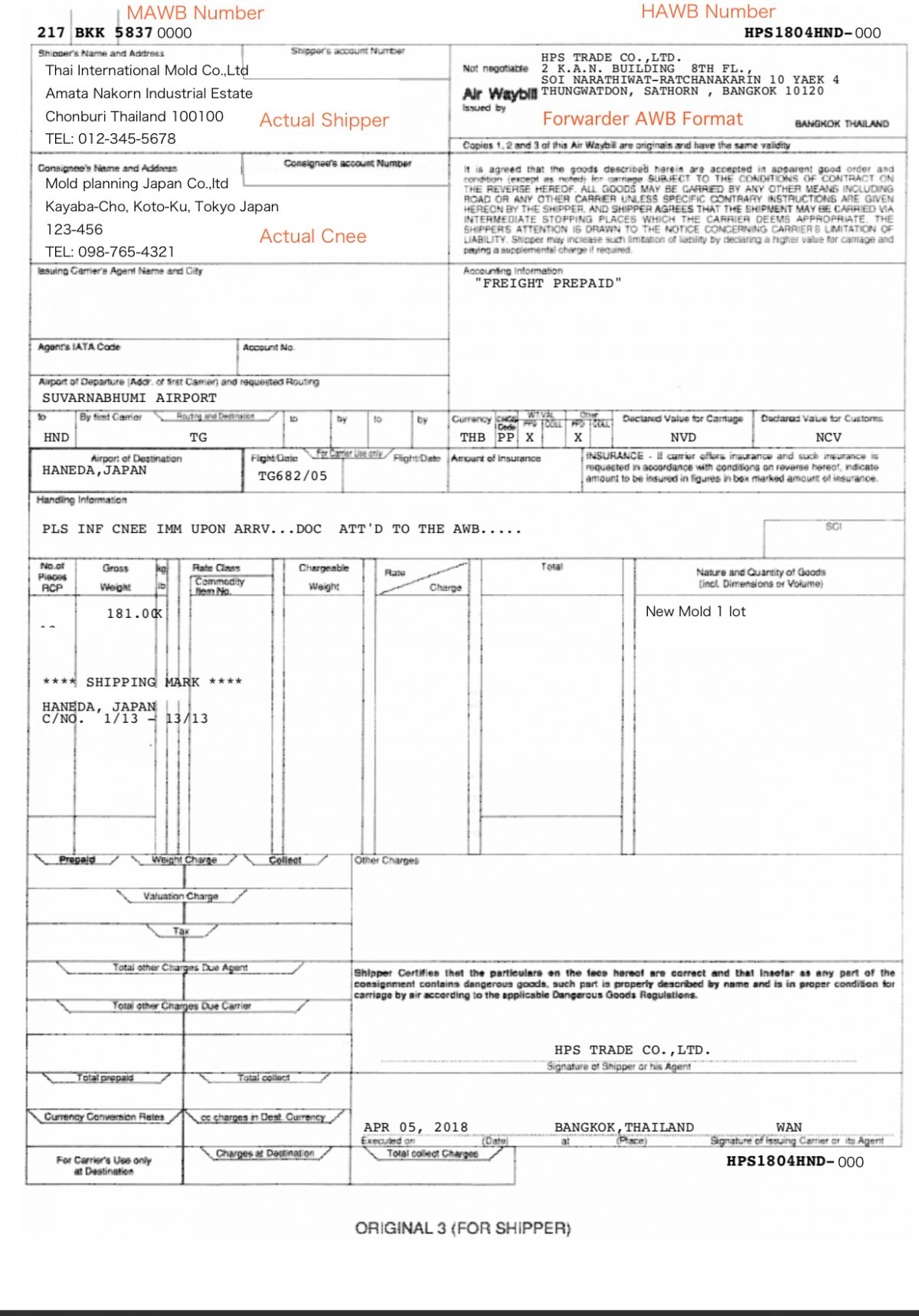
The shipping contract will be connected with forwarders and shipper companies. Therefore, the following will be stated on the HAWB.
* AWB number: AWB number issued by forwarder
* SHIPPER: Name and address of shipper company (ex: TOYOTA Thailand Chonburi)
* CONSIGNEE: Name of consignee company, address (ex: TOYOTA Japan Nagoya)
* Origin (Airport)
* Landing (Airport)
* Flight number
* Product Name: Actual Product Name
* Item Quantity
* Item Weight
* Air Freight
* Additional charge (fuel surcharge, security charge, etc.)
::
Summary
Forwarders will be responsible for picking up the cargo from shipper and delivery to consignee by air shipment. In addition, Forwarders serve as customs brokers, it is possible to provide total shipments of logistics to shippers, including export declarations to customs and import declarations.
It is much easier and faster to use Forwarder service for international logistics.




